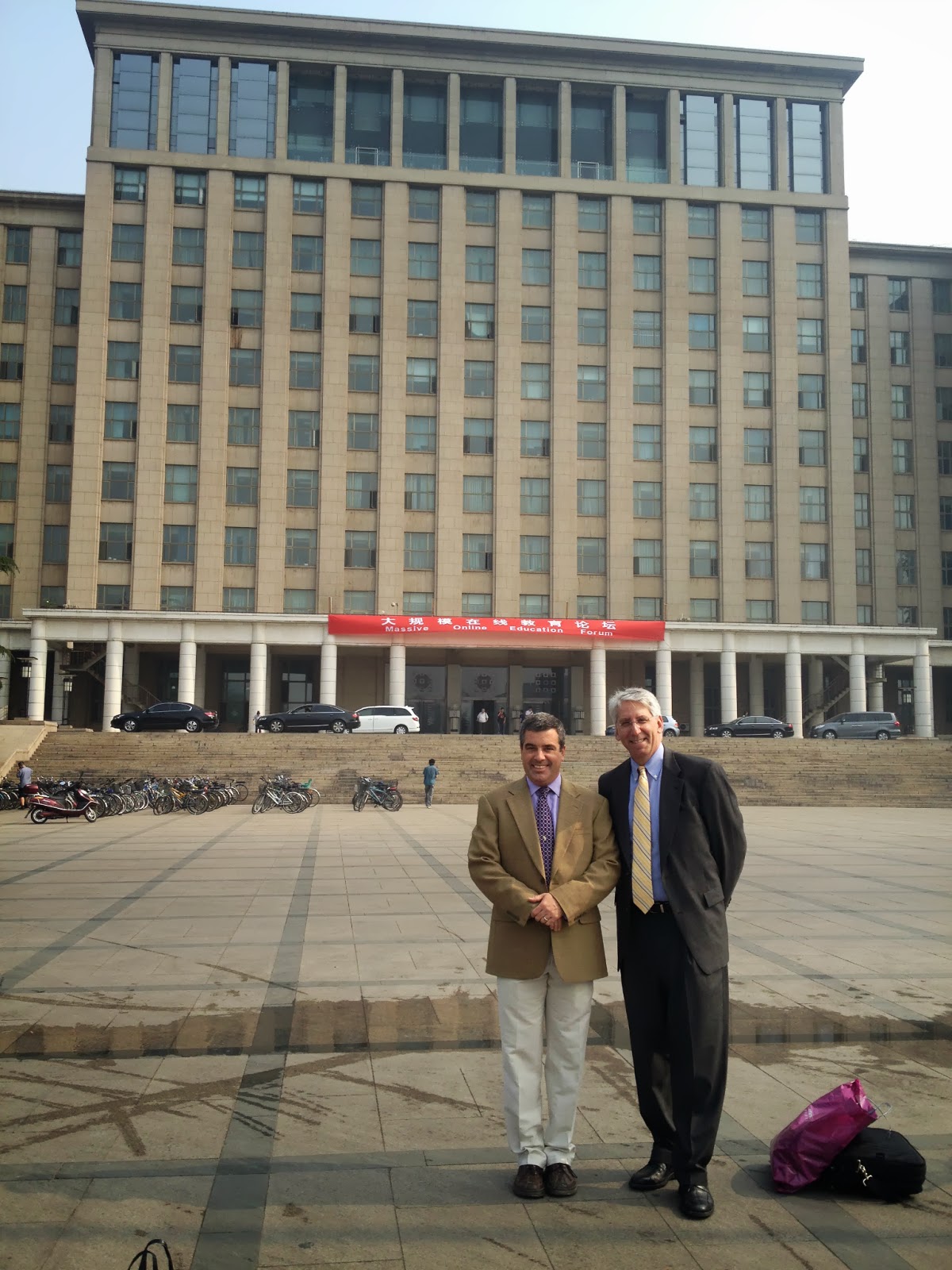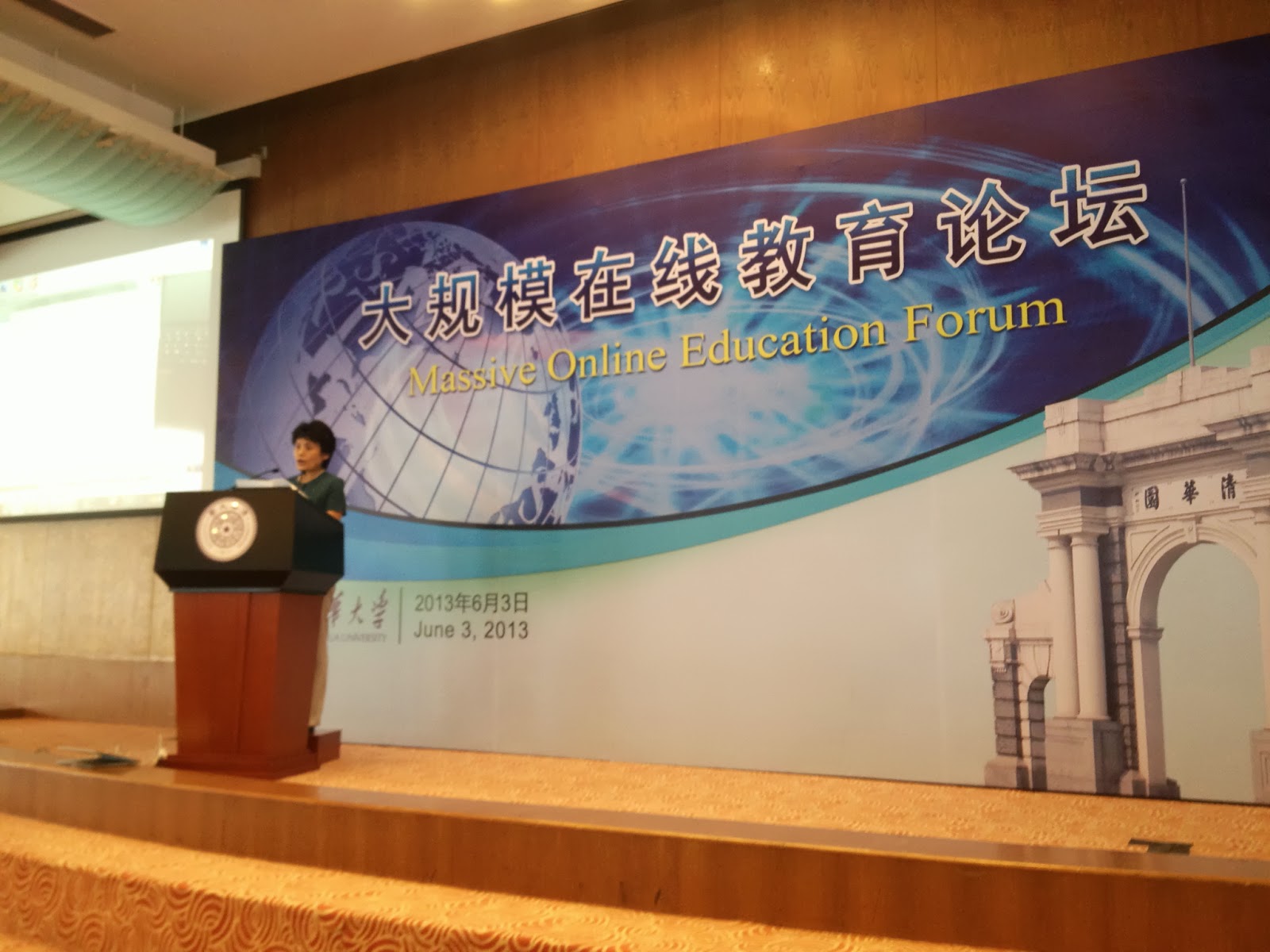Quite an interesting event today. I felt like a UN delegate, experiencing the event wearing headphones for simultaneous translation: all the talks except the two invited guests (myself and Howard Lurie of EdX) were in Chinese. Most interesting of all was a panel discussion in the late afternoon: myself plus 3 Chinese-speaking panelists! The moderator asked questions of them in Chinese and of me in English, with everyone wearing simultaneous-translation headsets. The translators did a remarkable job. (I can’t tell if their translations were correct, but they made sense.)


I noticed during the panel that there is a skill associated with giving a distilled and somewhat concise answer to a question, versus rambling on and on and getting farther and farther off topic with no apparent topical destination or time limit. I would say I have developed this skill to a much greater degree than my co-panelists, all of whom were fairly high-ranking academics at various Chinese universities.
After the official event I had an informal meeting with a few people in the Educational Technology Group here, with the help of one of Wei’s students stepping in occasionally to translate (their English was OK but a bit weak). What I learned was remarkable: these folks had built a system for online education that has been in use for over 15 years at over 400 Chinese universities, during which time over one million courses have been offered. Yes, one million courses. But for political reasons, Tsinghua University itself doesn’t use this system, and the university is large enough that most people in other departments were largely unaware of this work. We discussed collaborating on analyzing this gold mine of data. I asked how they evaluated whether their system was any good; they replied that it had been used to deliver lots of courses over many years. ”No, but how do you evaluate the quality of the system itself?” It was used in many more universities than its nearest competitor, a system built by a private company (Blackboard) that had coincidentally offered to acquire this team’s product. (They declined.) ”No, but how do you know the students are actually learning effectively?” They said millions of students had graduated from these schools so they believed the system worked. ”But have you done any formal evaluation to compare it to other teaching methods or even to compare it to NOT using this system?” No. It was interesting how long it took to convey the concept of “evaluate”—I think it wasn’t a language issue but a different way of looking at the world.
I had the best time talking over dinner with Wei and one of his graduate students. (We had Mongolian hot pot, in which a bowl of boiling water with oil and spices is used to quickly cook paper-thin slices of meat and other stuff.) Both had spent at least some time in the US, so we talked about life in China vs. the US a lot. Hong Kong is still much freer than the mainland; in fact, people who can afford it go there to have babies delivered, because then the baby gets a Hong Kong passport, which opens more doors than a Chinese passport. And those who can really afford it spend a month or two in the US and have the baby delivered there so it will be a natural citizen. (These aren’t welfare freeloaders: they pay everything in cash, $20k-$30k, including the hospital fees and apartment rental, and there are agencies that set everything up for a fee.)
Who has this kind of money? In Beijing, lots of people. People who could afford to gamble on Chinese stock in the 90s. People who own small businesses that did well. People who have an ownership stake in an extractive resource industry such as coal mining. Business people affiliated with multinationals. Corrupt government officials and those on their grease payroll.
Wei pointed to a nondescript highrise next to my hotel where 1800-square-foot apartments were going for US $2 million, and the building was sold out. The people living in the hutong I took photos of yesterday are sitting on gold mines: due to new preservation laws, those buildings can never be torn down, and no more will ever be built, but it’s OK to repurpose the interiors (e.g. into restaurants or clubs) as long as the exterior remains. Many of those families could pack up and leave anytime they wanted to and collect millions of US dollars selling their hutong dwellings to developers.
Tomorrow, the Great Wall…